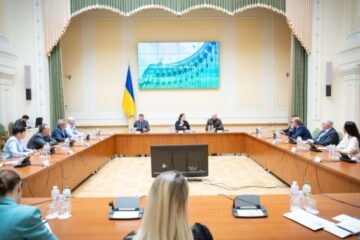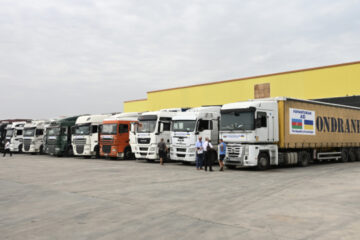Germany’s support for Ukraine remains limited and inconsistent, pressuring Kyiv toward inequitable decisions that risk further exacerbating the situation.
The Special Representative of the CDU/CSU Caucus in the Committee on Foreign Affairs and former General Staff Officer of the Bundeswehr, Roderich Kiesewetter, stated this in a comment to Ukrinform.
According to the Special Representative, German Chancellor Friedrich Merz’s initiative to invite several world leaders to virtual talks on August 13 to discuss the current situation in Ukraine does not yet indicate Berlin’s readiness to take on the role of European leader, given the meeting scheduled for Friday between U.S. President Donald Trump and Russian leader Vladimir Putin.
Unfortunately, this is not a sign that Germany is ready to take on a leading role in foreign and security policy. Such a role is not measured by words and discussions, but rather by visible actions. Germany is still unwilling to adjust its support strategy to include Ukraine’s victory and the liberation of all occupied territories. Otherwise, Germany would have deployed Taurus cruise missiles long ago, started training Ukrainian military personnel, taken the initiative on air defense over parts of Ukraine, and transferred all frozen Russian assets to Ukraine,” Kiesewetter said.
He believes that Germany’s indecisive and inconsistent behavior is contributing to Ukraine being increasingly forced into sham negotiations and capitulation, which only benefits Russia and will sooner or later lead to an escalation of the war.
Referring to the virtual consultations in Berlin on August 13, at which, according to the Federal Chancellery, Moscow’s “territorial claims” are expected to be discussed, the politician noted that Russia has no territorial claims; on the contrary, it seeks to annex the entire Ukrainian territory in violation of international law. In doing so, Russia is particularly targeting Donbas for both military and economic reasons, Kiesewetter added.
He is convinced that the video conference in Berlin can only be successful if Europe finally steps up its pressure on Russia and its allies and makes comprehensive commitments to Ukraine.
“In particular, to take control of air defense over western Ukraine, start training on the Taurus missile system and transfer long-range precision missiles, transfer frozen Russian assets to Ukraine, launch the SnapBack mechanism against Iran as an important supporter of Russia, ban the transit of the shadow fleet in the Baltic Sea, and impose secondary sanctions against India and China,” the MP said, listing possible steps.
The only truly reliable guarantee of security for Ukraine is NATO membership, as only it includes a nuclear defense component, stressed the former Bundeswehr Colonel and former Head of the Chief of Staff’s office (Executive Officer) at NATO Headquarters (2006-2009). He explained that membership in the Alliance would also guarantee the security of NATO troops stationed in Ukraine through nuclear protection.
The MP acknowledged that Ukraine already has additional security guarantees through security agreements that provide, for example, ongoing financial support, reconstruction assistance, and cooperation in the field of armaments. But these are agreements, not guarantees in the true sense of the word, he stressed. In addition, Ukraine could already join the Joint Expeditionary Force (JEF), which would be a starting point.
As reported, German Federal Chancellor Friedrich Merz invited several leaders to virtual talks on Wednesday, August 13, 2025. The topic of discussion will be the current situation in Ukraine because of the planned meeting between U.S. President Trump and Russian President Putin. Ukrainian President Volodymyr Zelensky will arrive in Berlin to participate in the talks.
Photos taken by Ukrinform can be purchased here.
Source: German MP: Germany still does not support Ukraine enough




